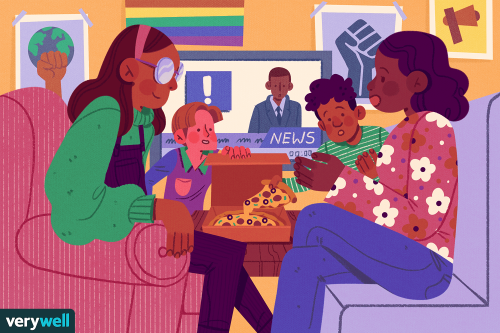
Affirm identities when you communicate: pronounce names correctly and honor the pronouns an individual uses.Listen and act in accordance with marginalized communities’ voiced needs and requests.Encourage your clubs, classes, and workplaces to use inclusive practices and policies.Create diverse leadership structures and pay attention to social identities represented in structures of power, such as campus administration and government.Question and critique media bias and representation (or lack thereof) in news and entertainment.Talk about the “isms” (e.g., racism, ableism, heterosexism, etc.) and the role they play in current issues, decisions, and events.Raise awareness around different social issues that are left out of discussions.Resist stereotypes and acknowledge oppressive histories within and outside of your communities.Assume there’s common ground and be willing to engage. (rather than judgement or shame to “call out”) those who may use oppressive language or actions. Offer kind and constructive feedback to “call in”.



Reflect on your social identity and social location and their associated histories.Understand the importance of giving something up to ensure that opportunities and resources are distributed more equitably.Recognize that acting as an ally shouldn’t require an audience or getting credit/praise.When you’re criticized, use that feedback to ensure you won’t make the same mistakes in the future. If you’re working to ally with a community, you’re almost certainly going to make mistakes. Don’t claim immunity to criticism if your impact is inadvertently negative.Ask about things you don’t understand, but do your own research first.Examine ways societal structures include and exclude groups of people.
#FOLX SOCIAL JUSTICE HOW TO#
Learn about cultural appropriation and how to avoid doing it.Be cognizant of the wide range of cultural and religious holidays, customs (prayer times, Sabbath), associated dietary needs, etc.Identify common micro-aggressions and eliminate them from your words & actions.Expand your knowledge and awareness of domestic and global social issues by taking courses or reading books and articles.Pay attention to who does and does not get positive attention, space, and resources.Observe dynamics of power and privilege.The suggestions listed below apply to operating in solidarity with and advocating for the rights and well-being of people of different races, cultures, sexes, genders, abilities, ages, faiths, and other identities and affiliations. Rather than an identity, allyship is a practice that needs ongoing work and focus. This fact sheet contains recommendations on how to practice effective “allyship.” Practicing allyship means “living your life that doesn’t reinforce the same oppressive behaviors you’re claiming to be against” (Mia McKenzie, “No More Allies,” 9/30/13). Ours must be a community grounded in mutual respect and kindness” (9/17/17). Please speak out against injustice, racism and bigotry, and reach out to support one another. Pollack clearly stated in her university message to Cornell students, staff, and faculty that “Our community needs your help. Participants will explore the ways in which racism functions and how it can be undone, exploring implicit biases that hinder racial justice.President Martha E.

Our team promotes this reflection by building the capacity of stakeholders to challenge assumptions and embedded bias, building relationships that create pathways toward equity.ĬSS provides a range of offerings designed to help communities critically analyze the way that racism persists in our society drawing from historical and systemic level understandings. Our belief is that an equitable and just society loves and invites its members to be their authentic selves and openly reflects on how disparities and historical oppressions contradict the principles of social justice. CSS works in partnership with folx to develop a shared understanding of the systems that impact our cross racial, cross-ethnic, and cross-cultural understandings, delving deep into the historical entanglements of racial inequity. CSS has developed national experience in supporting folx to consider the impact of race, power, and privilege on the work they do, both in schools and organizations outside of education.


 0 kommentar(er)
0 kommentar(er)
